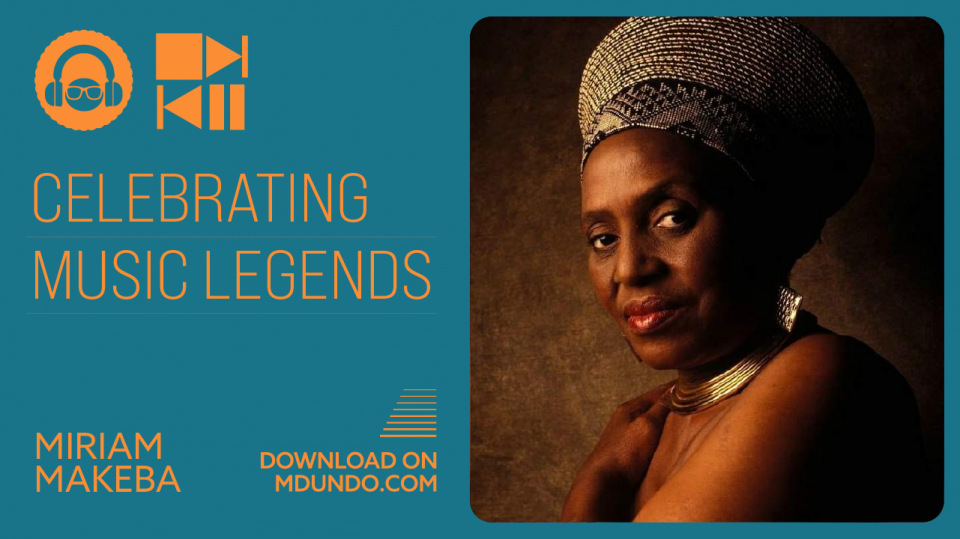Miriam Makeba Biography: Music, Activism, and Social Justice
22 March 2023
 Download FREE Mp3 Music by Miriam Makeba on Mdundo.com
Download FREE Mp3 Music by Miriam Makeba on Mdundo.com
Miriam Makeba, also known as Mama Africa, was a legendary South African musician who left an indelible mark on the global music scene. Born on March 4, 1932, in Johannesburg, South Africa, Makeba grew up in a musical household and began performing in local choirs and jazz groups at a young age. She would go on to become one of the most influential African musicians of the 20th century.
Makeba's career began in the 1950s, when she joined the South African group, the Manhattan Brothers. She later became the lead vocalist for the all-female group, the Skylarks, and it was during this time that she began to develop her unique sound, which blended traditional African music with jazz and other Western genres.
In 1959, Makeba released her first solo album, "Miriam Makeba," which included her signature hit, "Pata Pata." The song became an instant classic and helped to launch her career on the international stage.
Throughout the 1960s, Makeba became increasingly involved in the anti-apartheid movement in South Africa, and her music became a powerful tool for political activism. She used her platform to raise awareness of the plight of black South Africans and to call for an end to apartheid.
In 1963, Makeba performed at the United Nations General Assembly, where she gave a moving speech denouncing apartheid and calling for international action. Her music continued to be a powerful force for change, and she became a beloved figure in the global fight against racism and oppression.
Makeba continued to record and perform music throughout the 1970s and 1980s, collaborating with a wide range of artists, including Harry Belafonte, Paul Simon, and Hugh Masekela. Her albums from this period, such as "Sangoma" and "Eyes on Tomorrow," showcased her unique style and her commitment to social justice.
In 1990, after Nelson Mandela was released from prison and apartheid was officially abolished, Makeba returned to South Africa for the first time in 30 years. She continued to tour and perform, both in South Africa and around the world, until her death on November 10, 2008.
Makeba's legacy as a musician and an activist is undeniable. Her music has inspired generations of African artists, and her political activism helped to shape the course of South African history. Today, she is remembered as a true icon of African music and a tireless champion of social justice.






Leave your comment